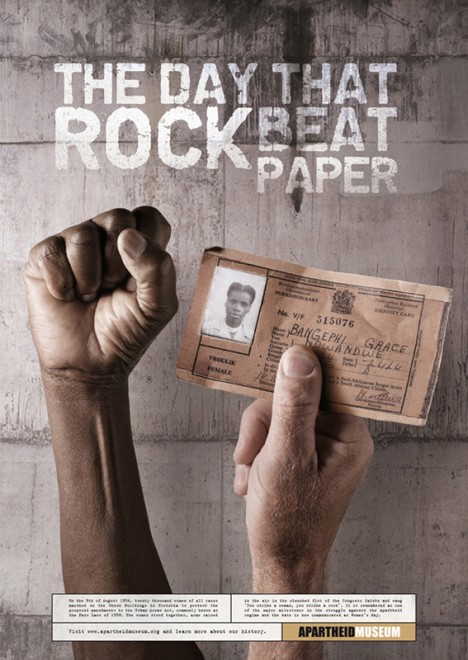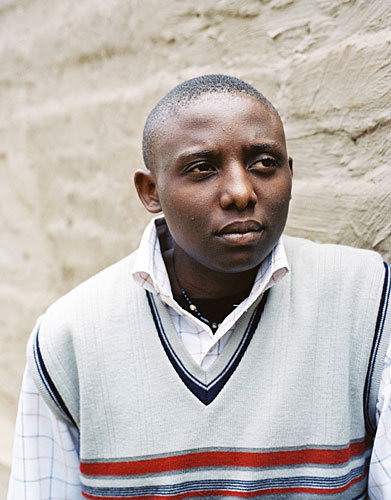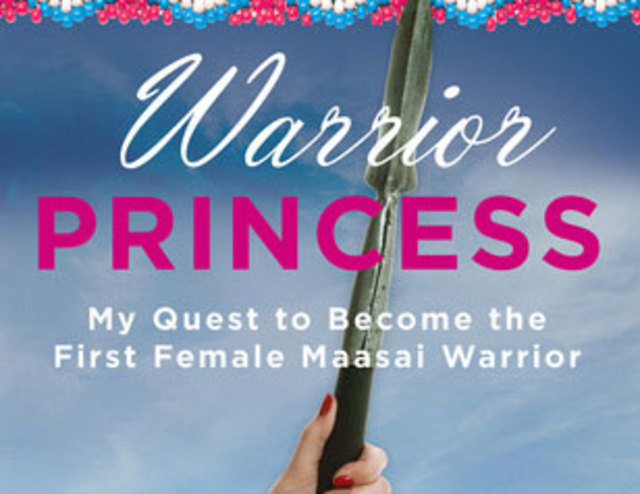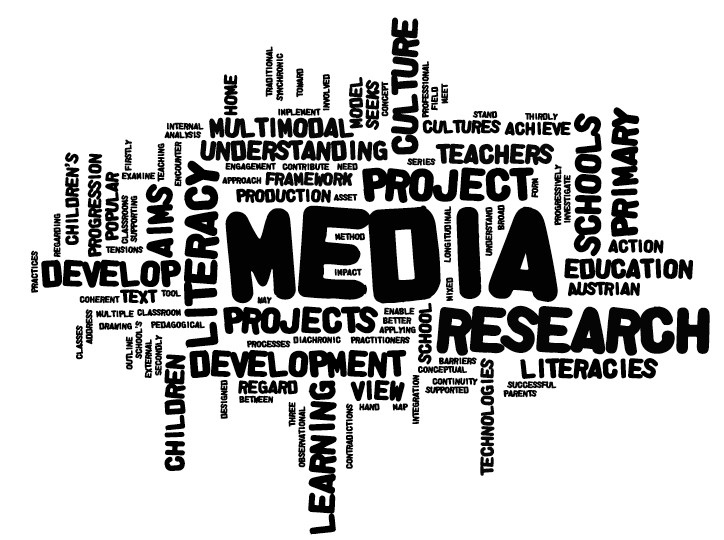Dear Readers,
You may wonder where I’ve been for the past month. The answer: RESTING.
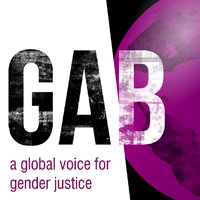
But, I’ve also been contributing to some of my favorite media outlets — Racialicious.com, plus now, Gender Across Borders — working on a chapbook (so fun!), and finally, developing a fierce editorial advisory board for my new media project highlighting diaspora voices. It’s all been very exciting, but has kept me very busy (ok, ok — I totally lied about the resting). The head-first dive into the global media blogosphere has left me with thoughts. And you all know what happens when I get thoughts.
For Gender Across Borders, I just published my first intro piece, “Celebrating Africa’s Resistance.” I invite you to read, share with your networks, and of course, use the comment section to leave me your thoughts. I look forward to reading your own reflections on the state of media coverage of African, the global south, and people of color, in general. So excited to be back!
Warrior Love,
Spectra
—
Say No to Media Saviorism: Celebrating Africa’s Resistance
Originally published at GenderAcrossBorders.com
When I hear “Gender Across Borders†the images that immediately come to mind are tragic: African women who face violence and sexual assault during times of war, groups of Afghan women in burqas shuffling through the unsettled dust of conflict resolution in silence, poor and starving African girls being nursed back to health for the premeditated purposes of child trafficking, and much worse. A quick google search for “gender justice†and “human rights†returns an inspiring list of organizations and websites (including this one) dedicated to addressing these issues in a myriad of ways: media coverage, non-profit direct service, volunteerism, advocacy, cause campaigning, etc. Yet, I found that as I clicked into each site, I was met with even more bad news, “shocking†reports, and yet, again, the same images: women being oppressed all over the non-western world.
 As a daughter of Africa, who is currently based in the US, I wonder to myself if a time will finally come when cable networks will include coverage of Africa beyond the saviorist commercials that urge me to save poor and starving African children, if major news outlets will consider Africa’s resistance and self-liberation newsworthy enough for morning shows (not just “breaking newsâ€), when independent blogs will consider amplifying more than just the “atrocious†acts that are often committed against us to also include our resilience — how African women continue to get back on their feet and march forward – every – single – time. Undoubtedly, many of these media organizations mean well and, despite the negative news coverage, are creating a positive impact by raising awareness; in my mind, the desire to bring to light the injustices that women face all over the world (given a white male-dominated media) is commendable. But, is oppression truly all that we can cover?
As a daughter of Africa, who is currently based in the US, I wonder to myself if a time will finally come when cable networks will include coverage of Africa beyond the saviorist commercials that urge me to save poor and starving African children, if major news outlets will consider Africa’s resistance and self-liberation newsworthy enough for morning shows (not just “breaking newsâ€), when independent blogs will consider amplifying more than just the “atrocious†acts that are often committed against us to also include our resilience — how African women continue to get back on their feet and march forward – every – single – time. Undoubtedly, many of these media organizations mean well and, despite the negative news coverage, are creating a positive impact by raising awareness; in my mind, the desire to bring to light the injustices that women face all over the world (given a white male-dominated media) is commendable. But, is oppression truly all that we can cover?
How about we — as global gender justice advocates — subvert the idea that women are perpetual victims by covering our collective resistance (at least much more often than, say, our male counterparts)? How about we more frequently discuss the kind of rebellion that may not necessarily inspire political protests as large in scale as the Arab Spring, but affirm brave acts that carve out new territory within the scope of women in government? How about we spend less time sharing negative news stories that go viral during major national crises, but focus on highlighting the slow and steady work of the underdog that is happening under the radar? How about we cut back on the sensationalism — the shock tactics and controversy we once deployed to get mainstream media to pay attention to issues important to us — and now spend time amassing an archive of positive happenings that could inspire legendary bed time stories of the many feminist heroes and heroines that have been paving the way to our liberation?
 Just to clarify, I do not intend to create a hierarchy of media coverage (i.e. good media vs. better media) within the context of global gender justice; any coverage of women’s issues (whether positive or negative) is much-needed coverage of women’s issues. Organizations like Gender Across Borders, the Caribbean feminist collective, Code Red, Women, Action and the Media, South Africa’s LGBT news hub, Behind the Mask, the LGBT Asylum News online portal, and hundreds more doing similar work to raise marginalized voices within have already made considerable gains in this arena, and thus, granted me the right to be greedy — now, I want now to see women’s and gender equality issues covered more thoroughly; I want it all — the good, the bad, the ugly.
Just to clarify, I do not intend to create a hierarchy of media coverage (i.e. good media vs. better media) within the context of global gender justice; any coverage of women’s issues (whether positive or negative) is much-needed coverage of women’s issues. Organizations like Gender Across Borders, the Caribbean feminist collective, Code Red, Women, Action and the Media, South Africa’s LGBT news hub, Behind the Mask, the LGBT Asylum News online portal, and hundreds more doing similar work to raise marginalized voices within have already made considerable gains in this arena, and thus, granted me the right to be greedy — now, I want now to see women’s and gender equality issues covered more thoroughly; I want it all — the good, the bad, the ugly.
The desire for more coverage of women’s proactive, creative solutions to Africa’s problems in part from one of my Afrofeminist principles; namely, it is just as (if not more) important to live from a place of hope, than from a place of fear and constant criticism. But surely, I’m not the only one who’s craving more positive news. I can’t be the only African, LGBT activist, trans* person, immigrant etc who cringes at the thought of having my experience manifest as projected by public health reports and/or “cold hard facts.” (Apparently, as an African gender non-conforming person, I’m expected to live till the age of 35. I just turned 30, by the way).
There is obviously more discussion to be had about western media’s loyalty to third world suffering, its incessant feeding on plight of the global south, but that is not the focus of this post. I intend to explore this idea more fully in the future, but today, I’d like to focus on what I’m going to do about it. Today, I’d like to assure you of just one thing:
I will not be using my column on Gender Across Borders to talk about the plight of African women. Whereas, in the past, I’ve contributed my fare share of critique, one of my new year’s resolutions as an afrofeminist (more on that later) is to focus more on highlighting positive media (versus constantly reacting to negative news).

Instead, I’ll be covering women all around the world who use their art, performance, and media to raise awareness of critical issues and under-the-radar uprisings. I look forward to sharing my favorite musicians, artists, writers, and media organizations with you.
I want to cover LGBT Africa’s resistance — one that doesn’t place sexual violence, political warfare, and death at the focal point, but reiterates over and over again that every day citizens are standing fast against oppression, speaking up for each other in the face of the west’s infantilizing media.
I want to cover women’s movements happening around kitchen tables, in hair salons, within the sanctity of religious and spiritual spaces, and familiarity of traditional ceremonies. I want to give young people a chance to understand that real movements happen within the scope of every day, and not just within political discourse.
I want to show the world that Africa can — on its own — walk and run; that our continent has caught up (and, has already been leading) many parts of the world in various areas — social entrepreneurship, women’s political participation, innovation and technology, and more.
Due to my own background, there may be some initial focus on Africa, but I am determined to highlight acts of resistance as they are happening all across Asia, Latin America, and the Arab world, as well. As I will be contributing to GAB weekly, please feel free to send me any artists, performers, media and/or filmmakers, and organizations who are creating positive change (not just reacting to it) by commenting under this post, via my GAB email, or my Twitter handle @spectraspeaks.
If the work is creative, inspiring, and impacts women and/or gender justice, I want to hear about it. I want you to hear about it. The world must hear about it.
Viva Africa.
[ps — none of this negates the fact that I’m known for my ranting, and thus, will continue to do so, just in moderation]
